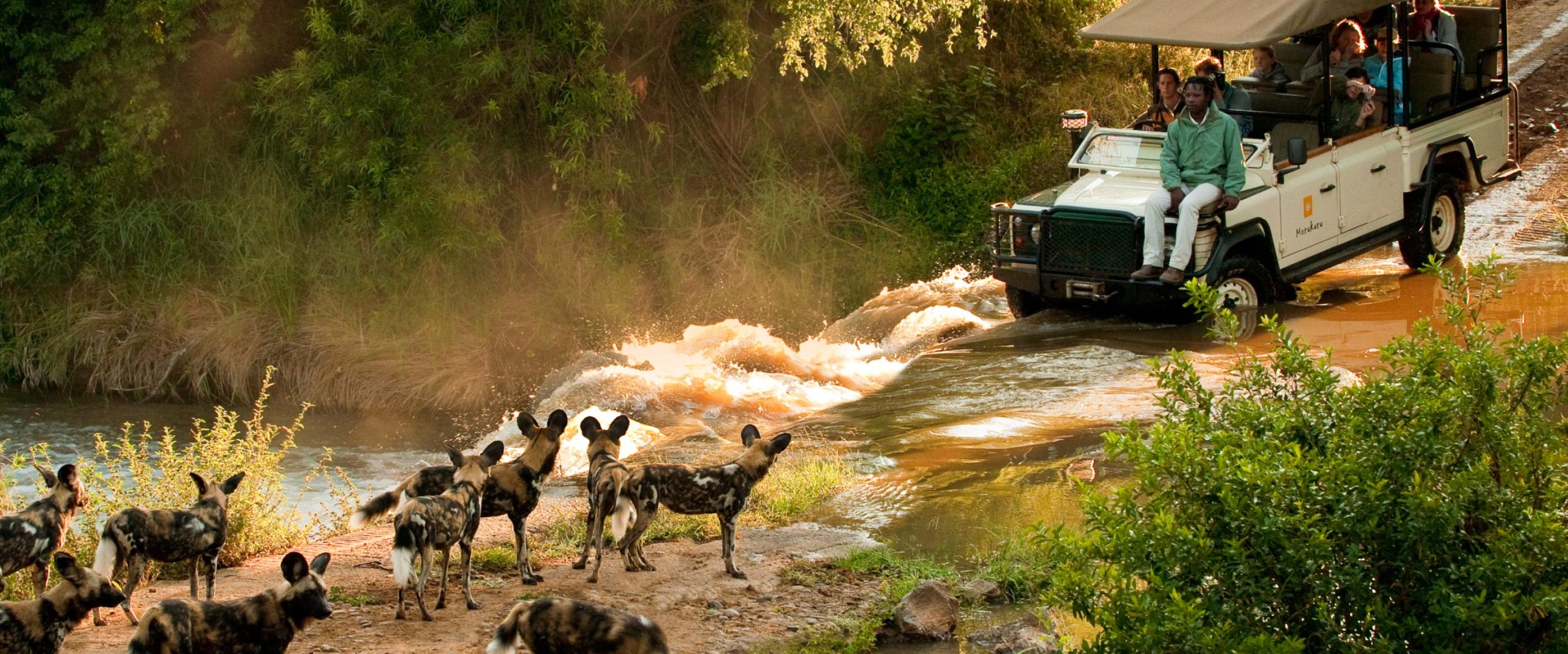
Health & Safety
It is important to ensure you have the right vaccinations for travel to Africa before you set off on your trip. It is important that you speak to your doctor about the most up-to-date vaccination advice. The vaccinations normally recommended for every country are: hepatitis A + B, typhoid and diphtheria.
A yellow fever vaccination is required by many countries, even though the disease is only found in parts of Central and South America, and Sub-Saharan Africa. This will be required whether for your whole holiday or for just one night in a certain country. You must also ensure that the vaccination is received at least 10 days prior to your departure.
Additionally, malaria is endemic throughout all the areas we operate safaris, so we strongly advise you to take malaria prophylactics. The only exception to this rule is parts of South Africa, which are malaria free. These include Madikwe and the game lodges around Port Elizabeth. Travel clinics can sometimes have long waiting lists, so make sure you get your vaccinations booked up in advance.
It is important to ensure you have the right vaccinations for travel to Africa before you set off on your trip. It is important that you speak to your doctor about the most up-to-date vaccination advice. The vaccinations normally recommended for every country are: hepatitis A + B, typhoid and diphtheria.
A yellow fever vaccination is required by many countries, even though the disease is only found in parts of Central and South America, and Sub-Saharan Africa. This will be required whether for your whole holiday or for just one night in a certain country. You must also ensure that the vaccination is received at least 10 days prior to your departure.
Additionally, malaria is endemic throughout all the areas we operate safaris, so we strongly advise you to take malaria prophylactics. The only exception to this rule is parts of South Africa, which are malaria free. These include Madikwe Private Game Reserve and the game lodges around Addo & Surrounds. Travel clinics can sometimes have long waiting lists, so make sure you get your vaccinations booked up in advance.
Medical kits are available at lodges and in safari vehicles to treat minor inflictions. You, however, should pack your own basic medical kit with painkillers, antiseptic cream, anti-histamine and plasters. Prescription medicines must be brought with on safari and it is important to note that a description of the medicine should be obtained from your practitioner in case of emergency while on safari.
The safest way to enjoy the sun and protect your skin is through a combination of clothing, sunscreen use and seeking shade at the hottest times of day. Pack plenty of high-factor sunscreen, a wide-brimmed hat, long-sleeved tops and sunglasses. Be aware that the risk of sunburn is greater at high altitudes. Also, UV light is reflected from water and white sand. If you’re snorkelling or swimming for long periods, it’s a good idea to wear a T-shirt and shorts.
No. If there were any issues in any of the countries where we operate our trips, we would not propose them as potential destinations. Furthermore, we receive regular updates on countries where we operate, so if any issues were to arise, we would make you aware of them before your date of travel.
Your health and safety while on your trip are of the utmost importance to us. We operate in many African countries, all of which have differing standards and local regulations that may not always meet the high standards you are used to in first world countries, for example.
We’ll always endeavour to provide as much information as possible about local conditions. However, we do recommend that you carry out some background research about the destinations you’re going to and any inherent risks involved in visiting these countries or in undertaking particular activities. The information below is designed to help ensure that you have a safe and enjoyable trip.
Some countries do unfortunately have issues with crime and security, and foreign visitors may be viewed as an easy target. Most street crime is opportunistic, so you should take care with valuables when walking around.
Take care not to flaunt items such as cameras and phones, and keep bags close to you and securely fastened at all times. Be aware of distraction techniques, such as someone spilling drinks or ice-cream on you then offering to clean it up.
We recommend that jewellery and expensive watches are left at home. Consider buying a cheap watch to use instead when you travel. Make use of the hotel safe for passports and money, but always keep a photocopy or digital photograph of your passport in a separate place.
Always listen to the advice of your guides and to the hotel staff. This is particularly important if you have free time and will be exploring on your own or going out at night. Local advice is always the best source of information for knowing which areas are safe to visit, the best way of getting there and which taxis or other transport options to use.
We insist on our suppliers using a high standard of vehicles and drivers. If you’re unhappy about any aspect of the vehicle or the standard of driving, please advise the driver or your Private Travel Designer immediately.
Please be aware that in many of the countries where we operate it isn’t a legal requirement to have seat belts fitted in the back of vehicles. We ask our suppliers to use vehicles that do have rear seat belts whenever possible, but this can’t always be guaranteed.
If you’re hiring a car and driving yourself, please ask about local speed limits and traffic laws before setting off. These are likely to be different to those in your home country and can even vary within the same destination where traffic rules are governed by state or provincial laws rather than national laws. Always obey the speed limits, do not drink and drive, and plan your journey carefully to avoid driving at night.
